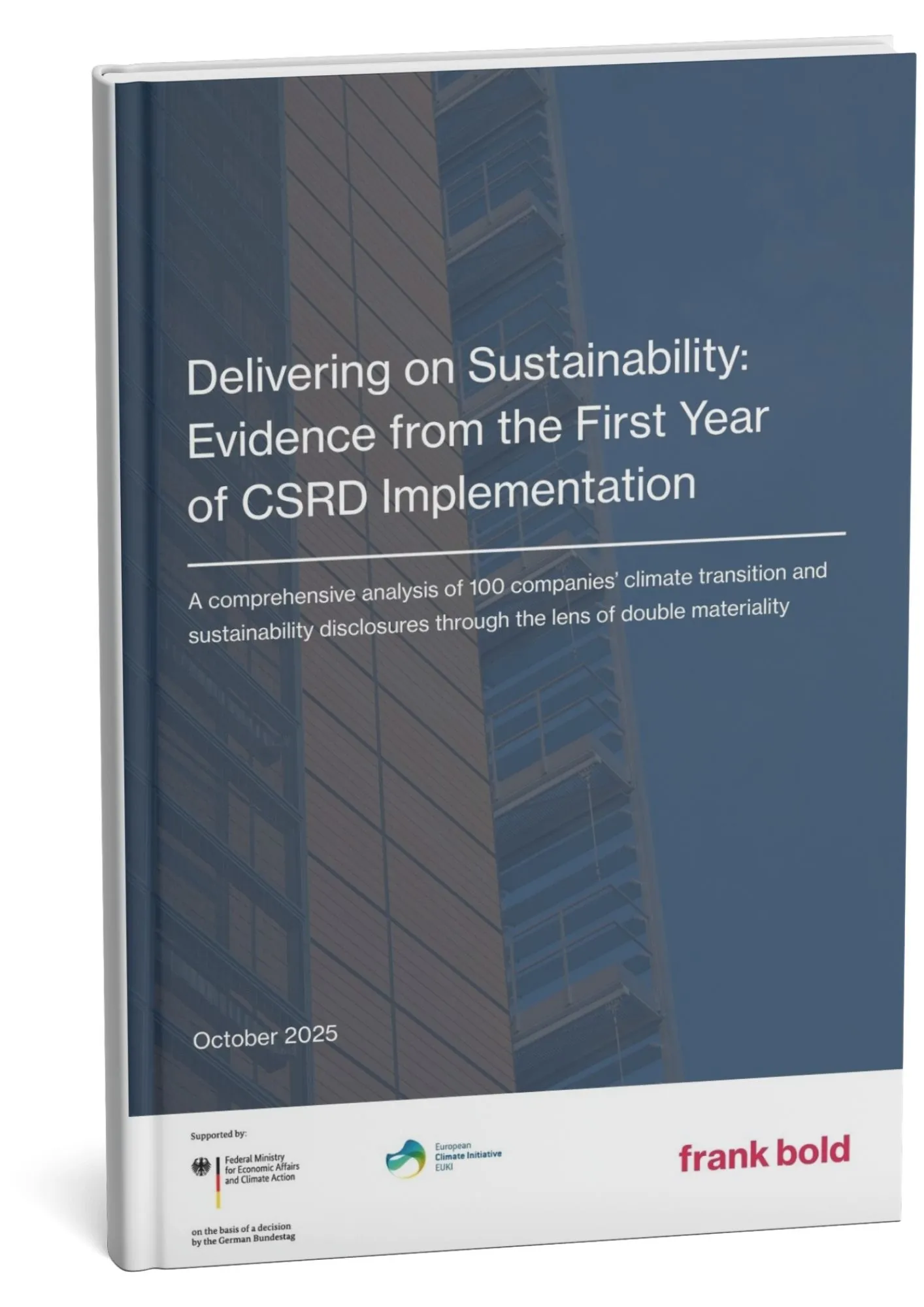.webp)
We already have a lot of experience in assessing dual materiality for our clients. Based on this experience, we have compiled 5 important things you should know about double materiality, especially if you are just starting out.

How to turn the taxonomy report obligation into an opportunity for your company? Read the article: Your company can also benefit from EU Taxonomy. We show examples of specific opportunities in three sectors
.webp)
Need help with your emissions assessment? We can help you calculate your carbon footprint from Scope 1, 2 and 3.
Reporting Scope 3 emissions is likely to be the most challenging for Czech companies. You can read how to deal with these emissions in our article.

Discover how European companies are managing ESG reporting. The new study by Frank Bold’s Responsible Companies team summarizes the first wave of sustainability reports from one hundred major European companies and shows that reporting under the CSRD provides valuable data for decision-making and is becoming an effective tool for risk management. Publication is part of the European Climate Initiative (EUKI) of the German Federal Ministry for Economic Affairs and Climate Action (BMWK).

Comprehensive Sustainability Report aligned with CSRD.
.webp)
A simplified ESG report for your business partners.

Mapped according to GHG Protocol Product Standard.

We are part of the Frank Bold Expert Group
Copyright ©
Aktuální rok script
Frank Bold